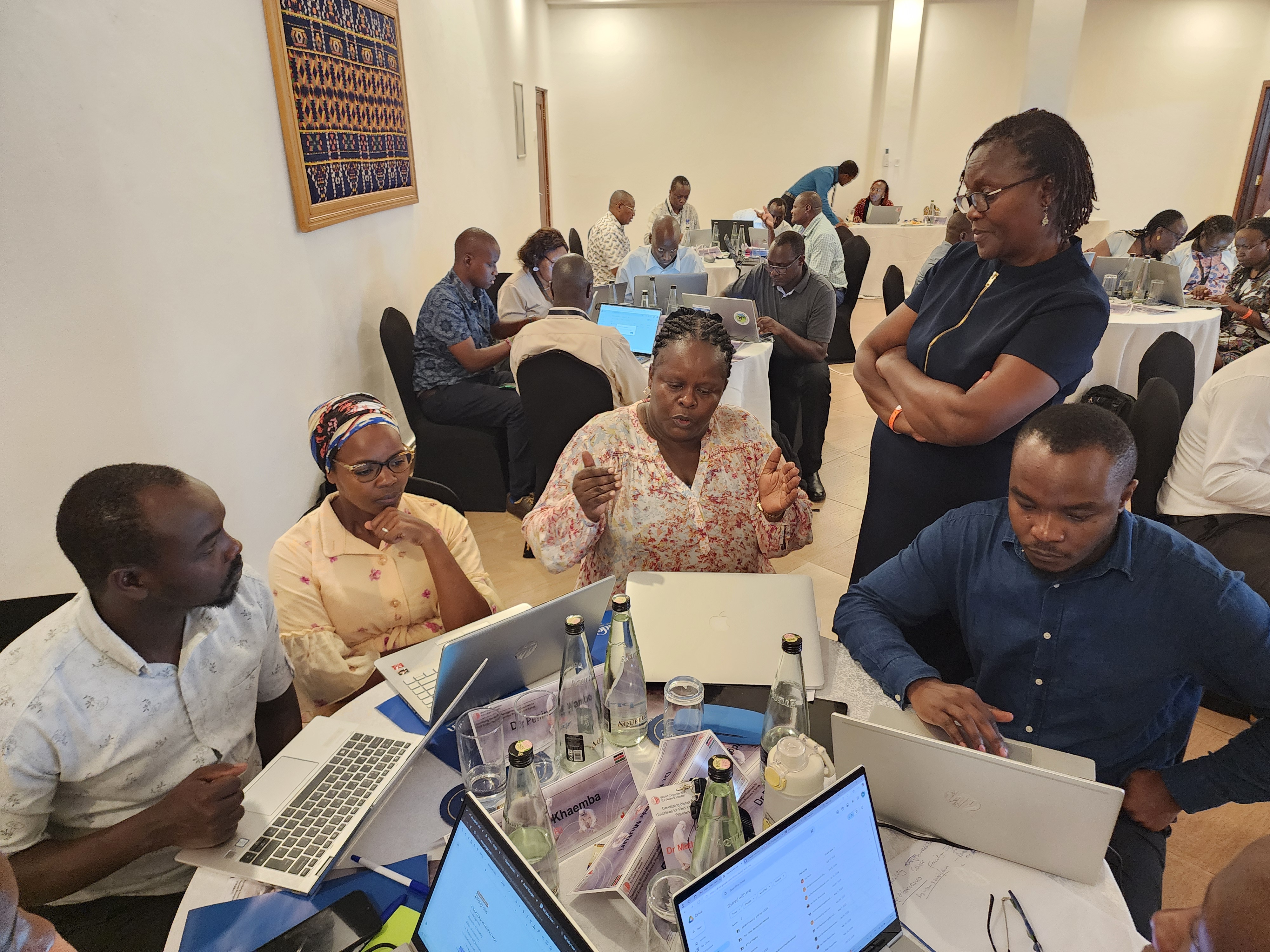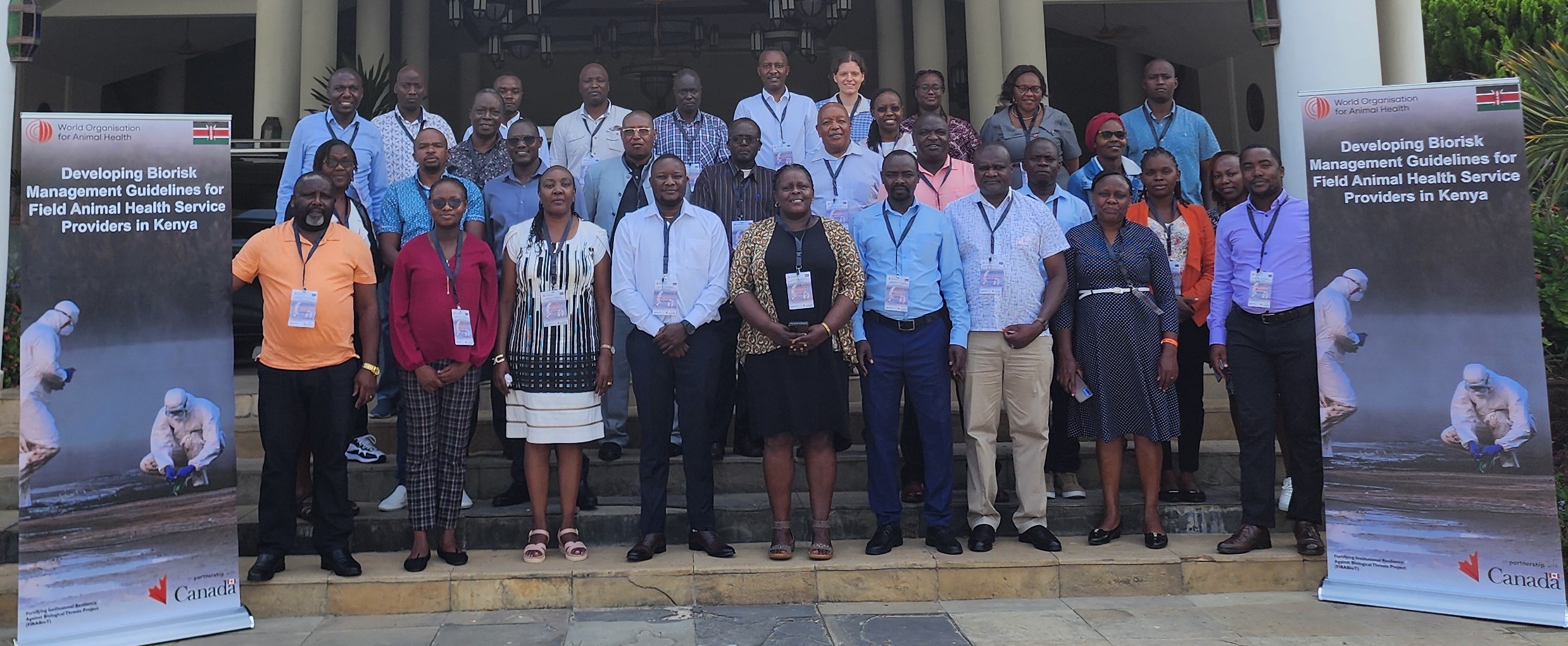
Field animal health service providers are particularly vulnerable to zoonotic diseases that are spread by close contact with diseased animals or their bodily fluids. During routine veterinary procedures such as immunisations, examinations, and surgical operations, common zoonotic infections such as Salmonella, Leptospira, and Brucella can be spread through ingestion, inhalation, or cutaneous exposure. These challenges are compounded by the lack of reliable biological waste disposal facilities, as improper disposal can contaminate the environment and increase the risk of disease transmission.
Thus, as part of its national workplan under the Fortifying Institutional Resilience Against Biological Threats (FIRABioT) project of World Organisation for Animal Health (WOAH), Kenya requested support with developing biological risk management guidelines for field animal health service providers. WOAH organised the drafting workshop for these guidelines from March 10 to 14, 2025 in Mombasa, Kenya to address critical gaps in biological risk management during animal health related field operations, ensuring the protection of practitioners, the environment, and the public from associated biological risks, whether natural, accidental, or deliberate.
The workshop brought together 25 participants from national organisations involved in animal health, including the Directorate of Veterinary Services (DVS), veterinary laboratories, research and vaccine institutes, academia, veterinary association and county veterinary departments. Working closely with Africa CDC regional subject matter experts on biological risk management, and experts from the Tanzania Veterinary Laboratory Agency (TVLA) and Kenya Agricultural & Livestock Research Organization (KALRO), the participants drafted guidelines addressing biological risk management during the various activities involved in veterinary field work in the Kenyan setting.
Participants engaging in group discussions. Picture © I. Busuulwa (woah) 2025.
Speaking on behalf of the DVS, Dr Romona Ndanyi, the Head of Kenya’s National Veterinary Reference Laboratories, and FIRABioT project focal point, highlighted that while Kenya has taken massive strides in building biological risk management capacity within the laboratory system, there still existed several challenges in ensuring proper biological risk management practices during field operations. Thus, drafting these guidelines would not only ensure safety during field operations but would also reduce the likelihood of agrocrime and agroterrorism by ensuring that biological agents are handled and stored safely in field operations.
Dr Romona Ndanyi delivering opening remarks on behalf of the Director of Veterinary Services. Picture © E. Wijers (woah) 2025
Following the drafting workshop, the draft guidelines will be shared with the relevant national and regional stakeholders for their input ahead of the validation workshop scheduled for July 2025. The development of biological risk management guidelines for field animal health service providers is part of Kenya’s activities as a beneficiary of the Fortifying Institutional Resilience against Biological Threats (FIRABioT) Project. This project is funded by Global Affairs Canada’s Weapons Threat Reduction Programme in support of the Global Partnership Signature Initiative to Mitigate Biological Threats in Africa.





